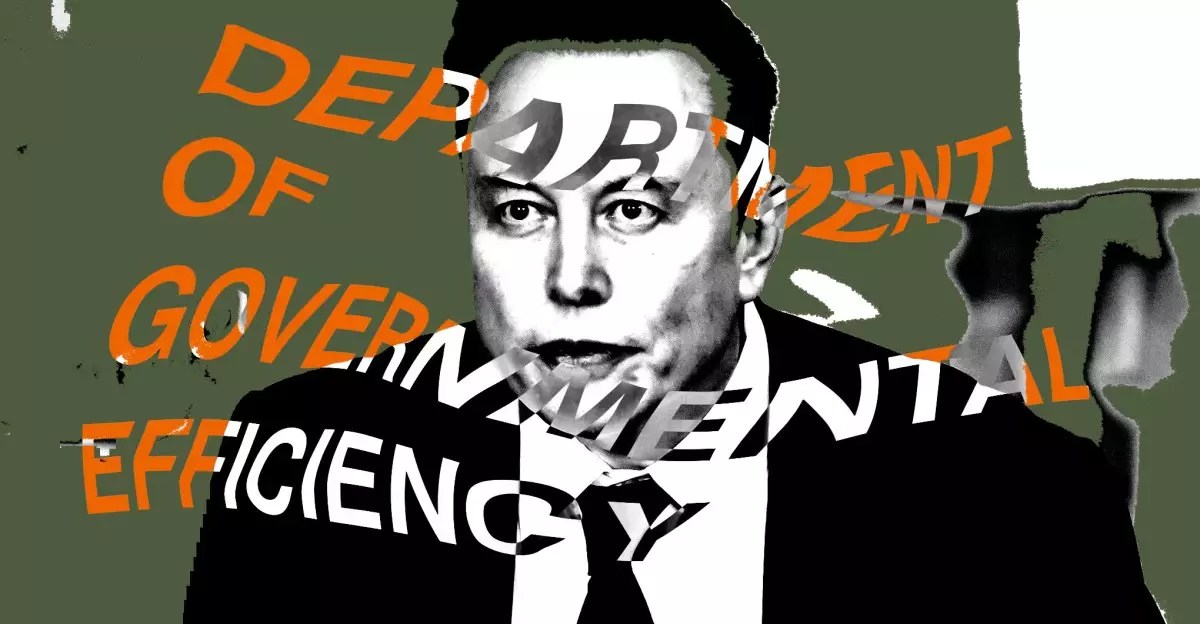In an unusual turn of events, a Saturday email dispatched to federal employees has elicited considerable backlash. Directed by the Office of Personnel Management (OPM), the email required recipients to submit bullet points detailing their recent work achievements by Monday night. The timing and content of this message, coinciding with Elon Musk’s cryptic tweet suggesting that failure to respond would be interpreted as resignation, have sparked questions regarding the legality and appropriateness of such demands within the federal workforce.
Elon Musk, the tech magnate and CEO of several high-profile companies, has interjected himself into the federal employment landscape in a way that has prompted concern among legal experts and lawmakers. His tweet indicated consequences for non-compliance that could infringe on federal law. Laws from the civil service system dictate safeguards designed to protect federal employees from punitive actions without just cause. Notably, Sam Bagenstos, a law professor from the University of Michigan, emphasized that Musk’s suggestions have no foundation within the current civil servant protections. Such a statement reflects the ongoing concern about legitimate authority and the rights of federal workers.
The Political Response
The reaction from political leaders was swift. House Minority Leader Hakeem Jeffries accused Musk of creating distress for federal employees and their families, highlighting that his demands lack any legal basis. As public figures weigh in on the issue, it becomes increasingly clear that Musk’s audacious claims may lack the necessary support from precedent or regulatory frameworks.
Treading on Legal Grounds
The essence of the controversy lies in the intersection of Musk’s authoritative style and the established protocols within federal service. Experts warn that the edict may unintentionally push employees toward actions that could be categorized as unlawful. The Washington Post pointedly remarked that this might lead employees to navigate a minefield of complex regulations pertaining to federal employment. The potential ramifications for federal employees—who are often already under pressure to demonstrate their productivity—compound the unease surrounding this email.
This incident mirrors Musk’s management approach since acquiring Twitter, where compliance with often vague and aggressive demands has become standard practice. Reports of engineers facing pressure to verify their work under the threat of dismissal reflect a management style that some argue undermines workplace stability and morale. Observers have noted a concerning trend: the influx of business tactics being applied to an environment that traditionally values regulatory structures and employee protection.
A Need for Clarity and Action
As the dust settles on this unfolding scenario, it becomes increasingly apparent that clarity is urgently needed. Federal employees find themselves at the intersection of corporate-style demands and legal protections that govern their jobs. The OPM, while navigating a landscape shaped by external pressures, may need to intervene to reaffirm the protocols that safeguard employees from undue influence. It is essential for the federal government to assert its authority and protect the integrity of its workforce amid such unexpected and potentially harmful initiatives.
While innovation in government efficiency is desirable, it must be pursued within the framework of legality and existing civil service protections, safeguarding not just efficiency but also the rights and dignity of federal employees.


Leave a Reply